Medical Student Cover Letter Examples

May 29, 2025
|
12 min read
Learn to craft a standout medical student cover letter with precision and care. Discover tips to ensure your application is the right prescription for success, making you the perfect 'patient' candidate for any residency program.
Rated by 348 people
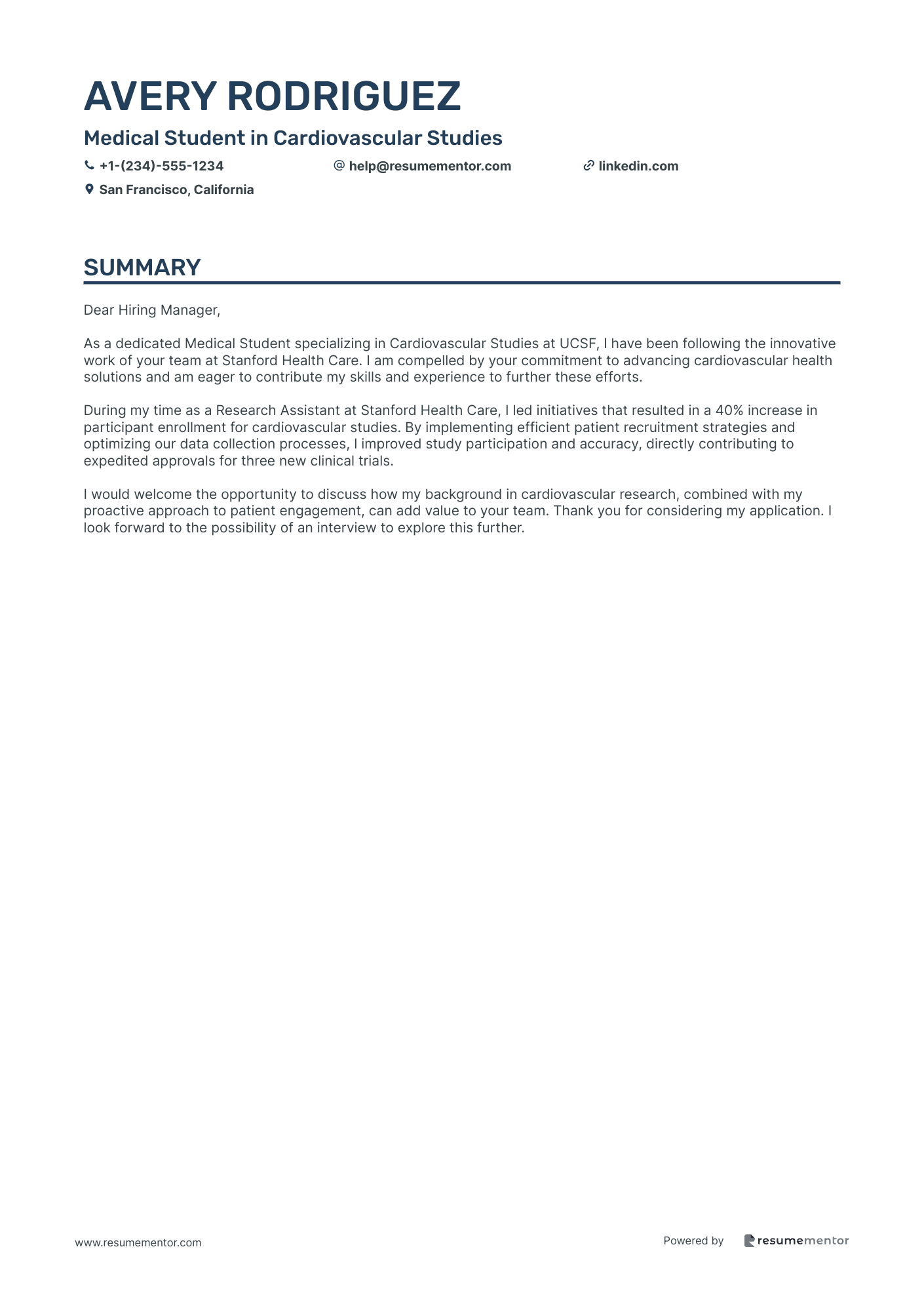
Medical Student in Cardiovascular Studies
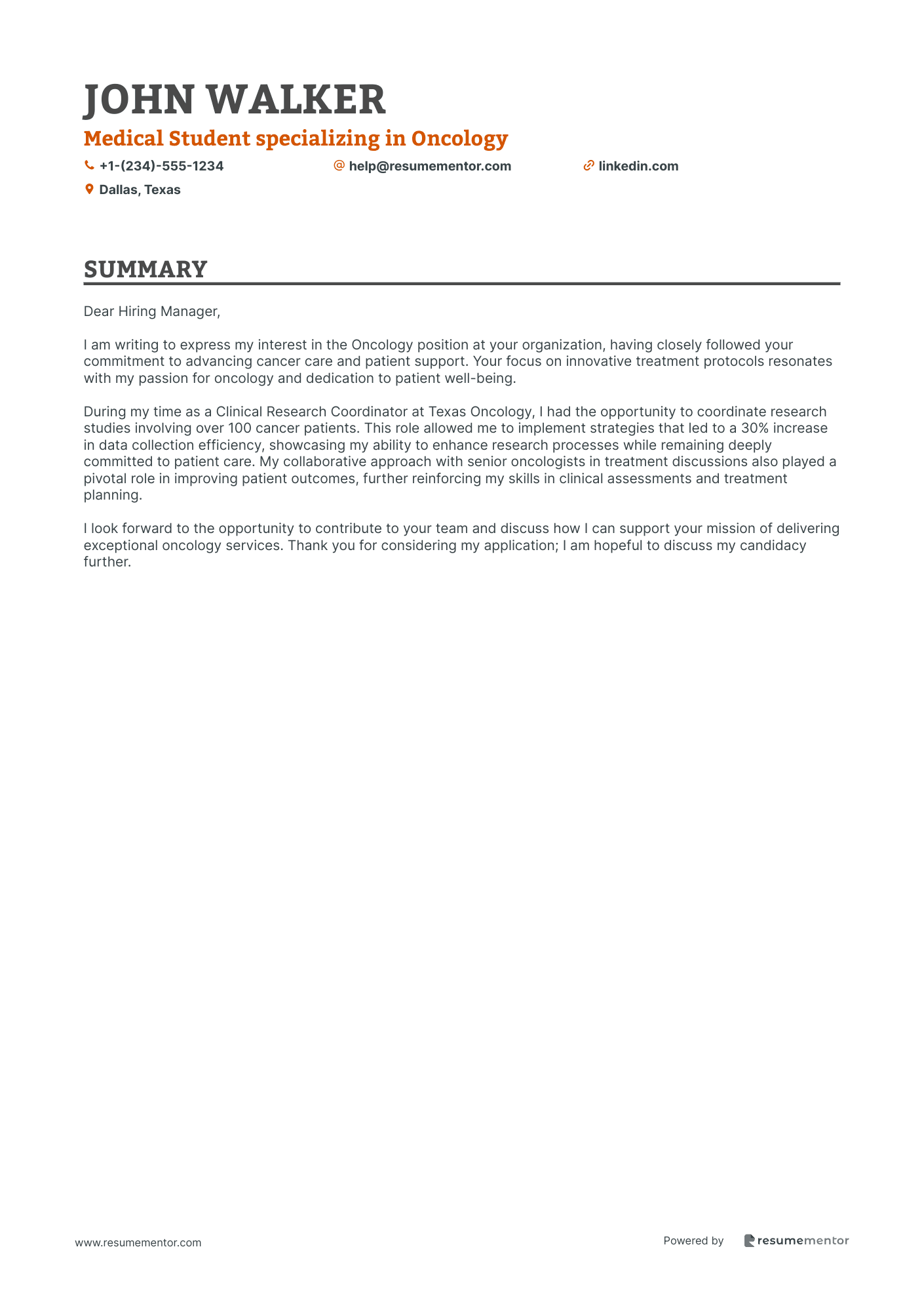
Medical Student specializing in Oncology
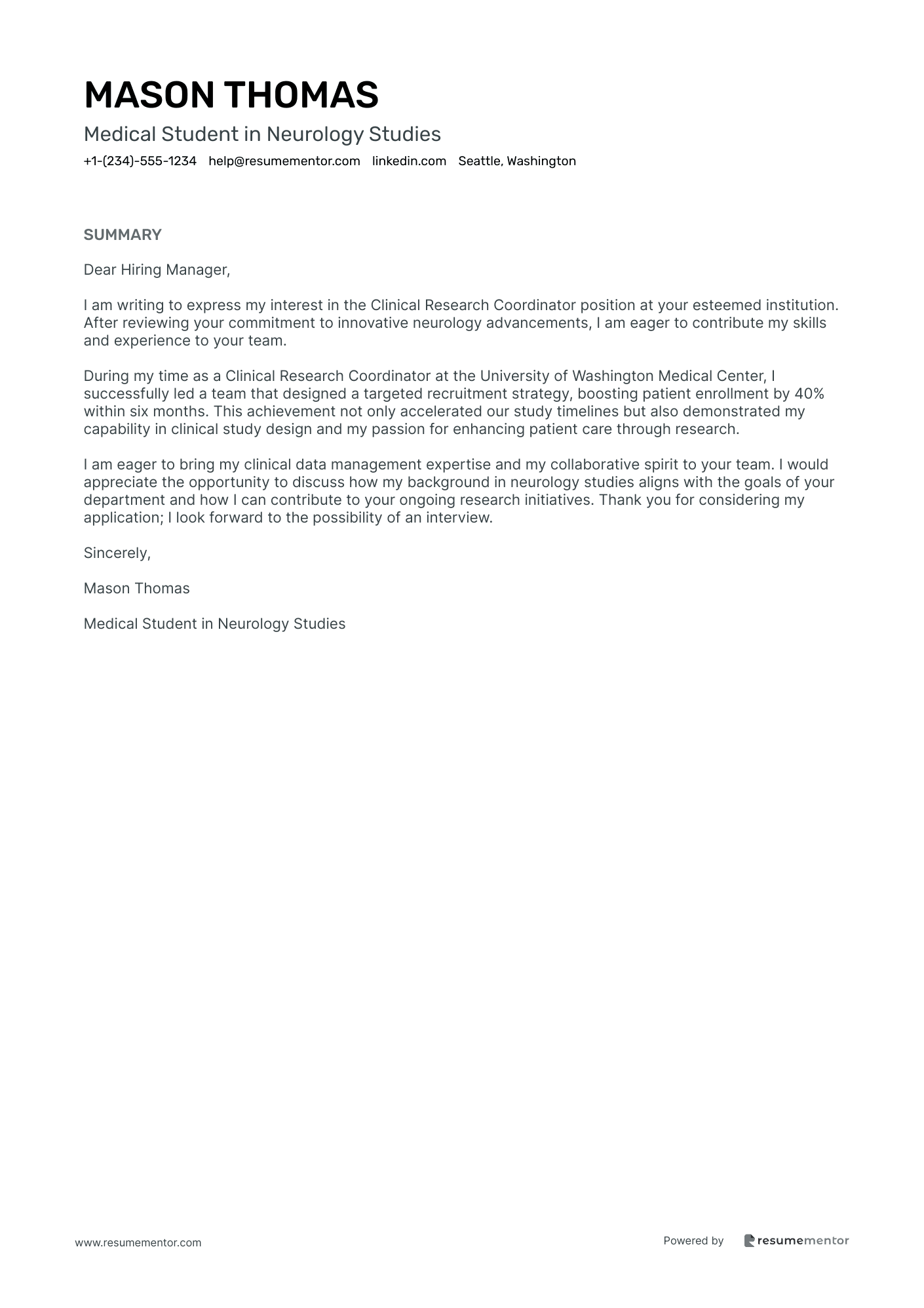
Medical Student in Neurology Studies
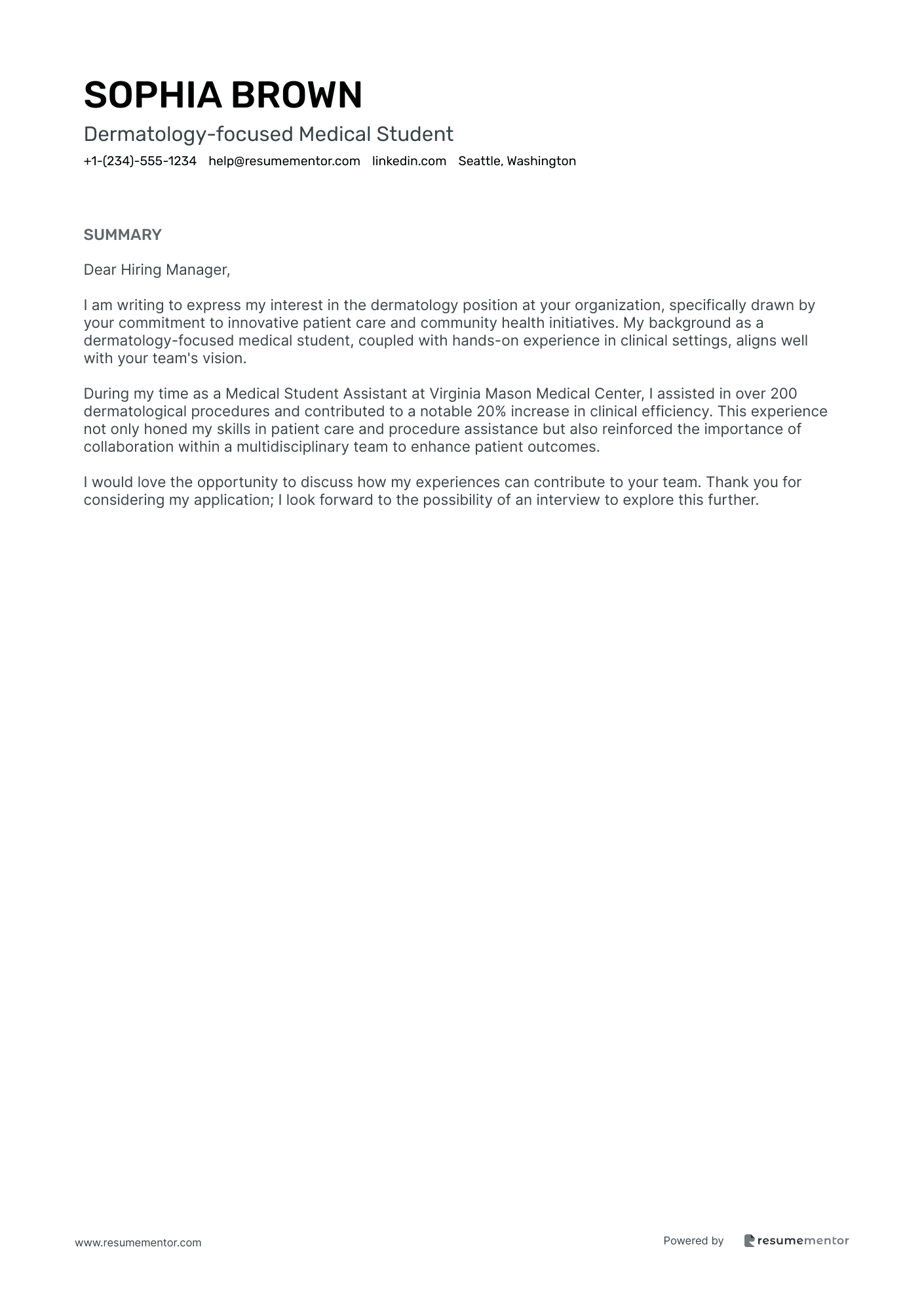
Dermatology-focused Medical Student
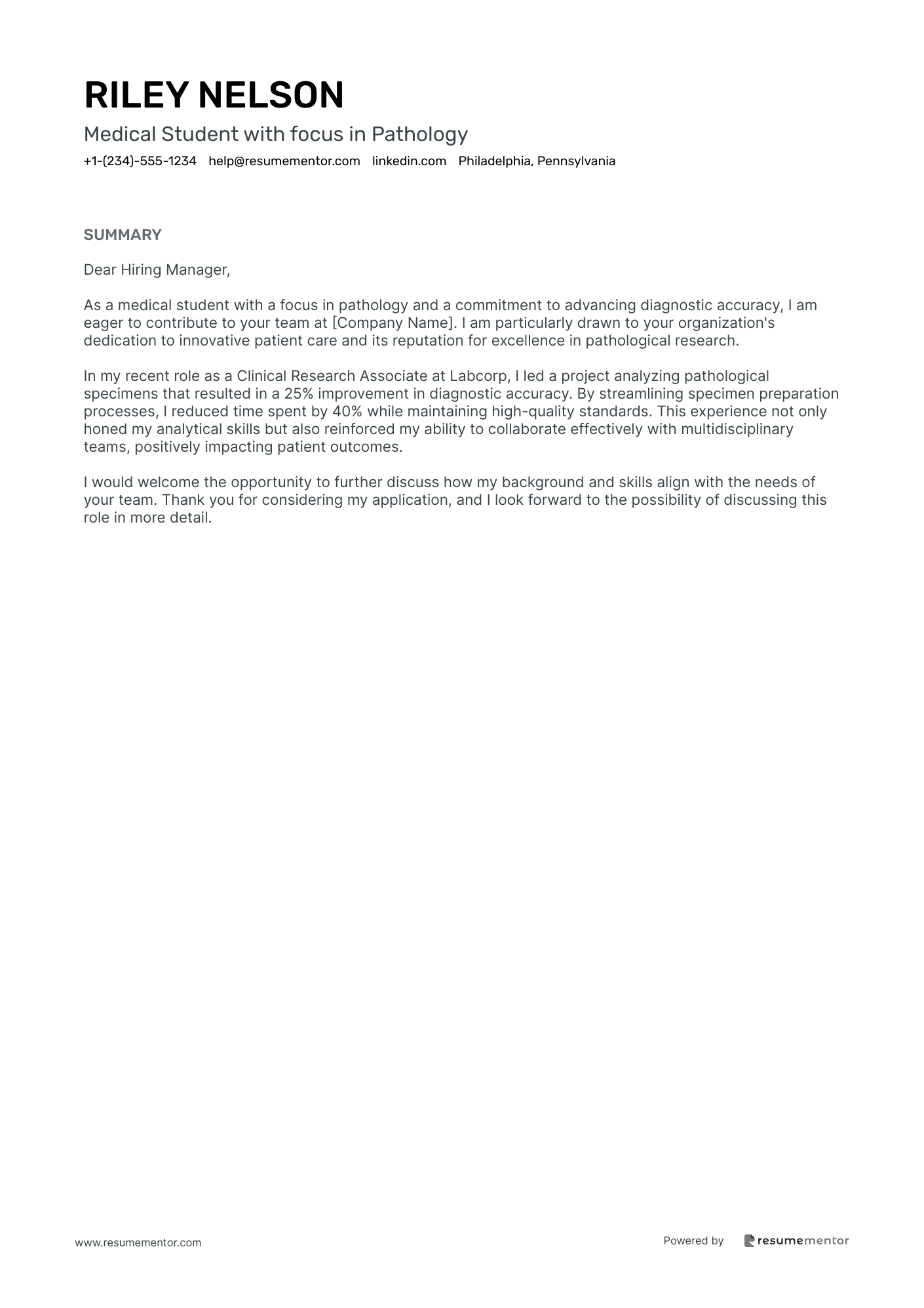
Medical Student with focus in Pathology
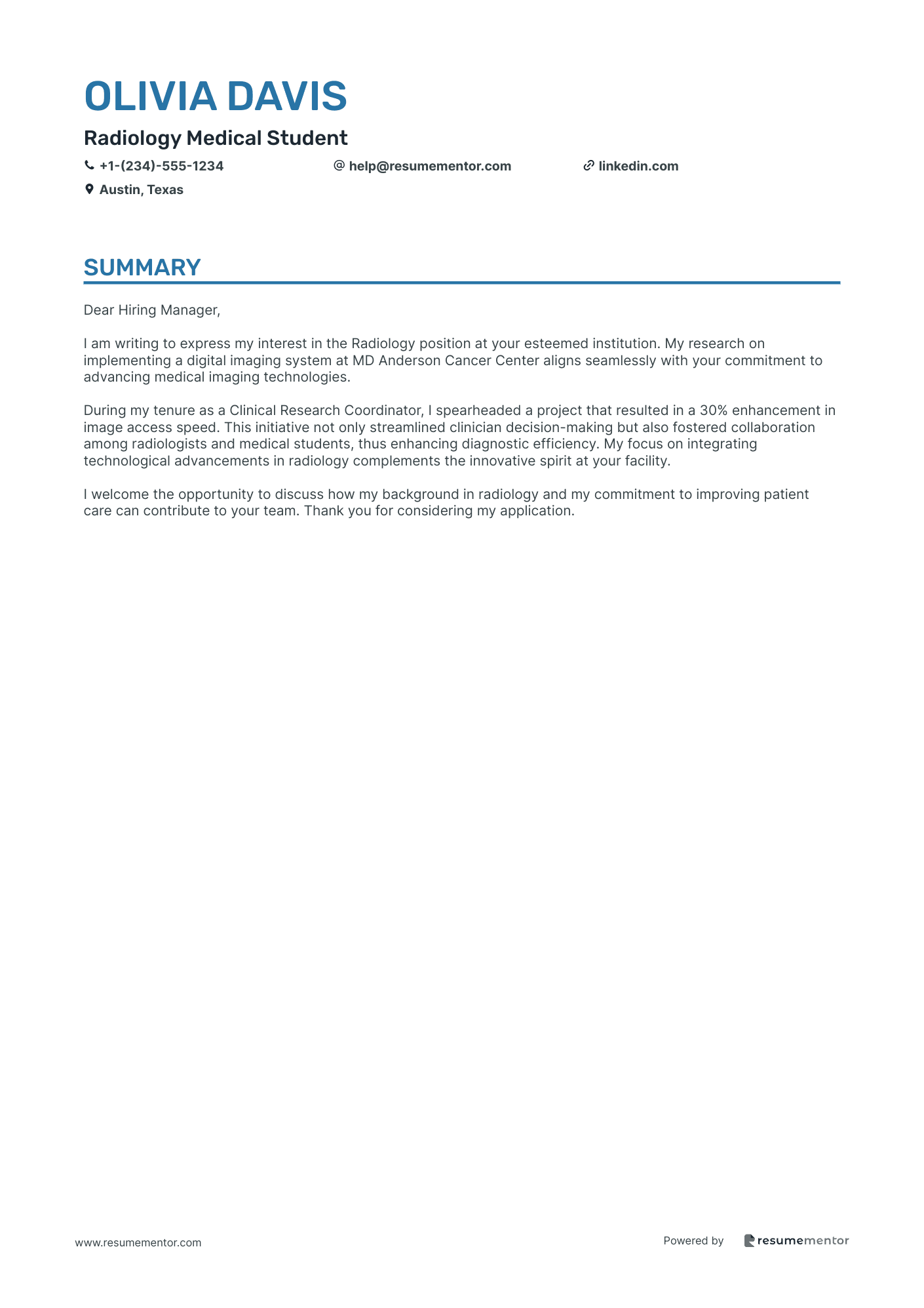
Radiology Medical Student
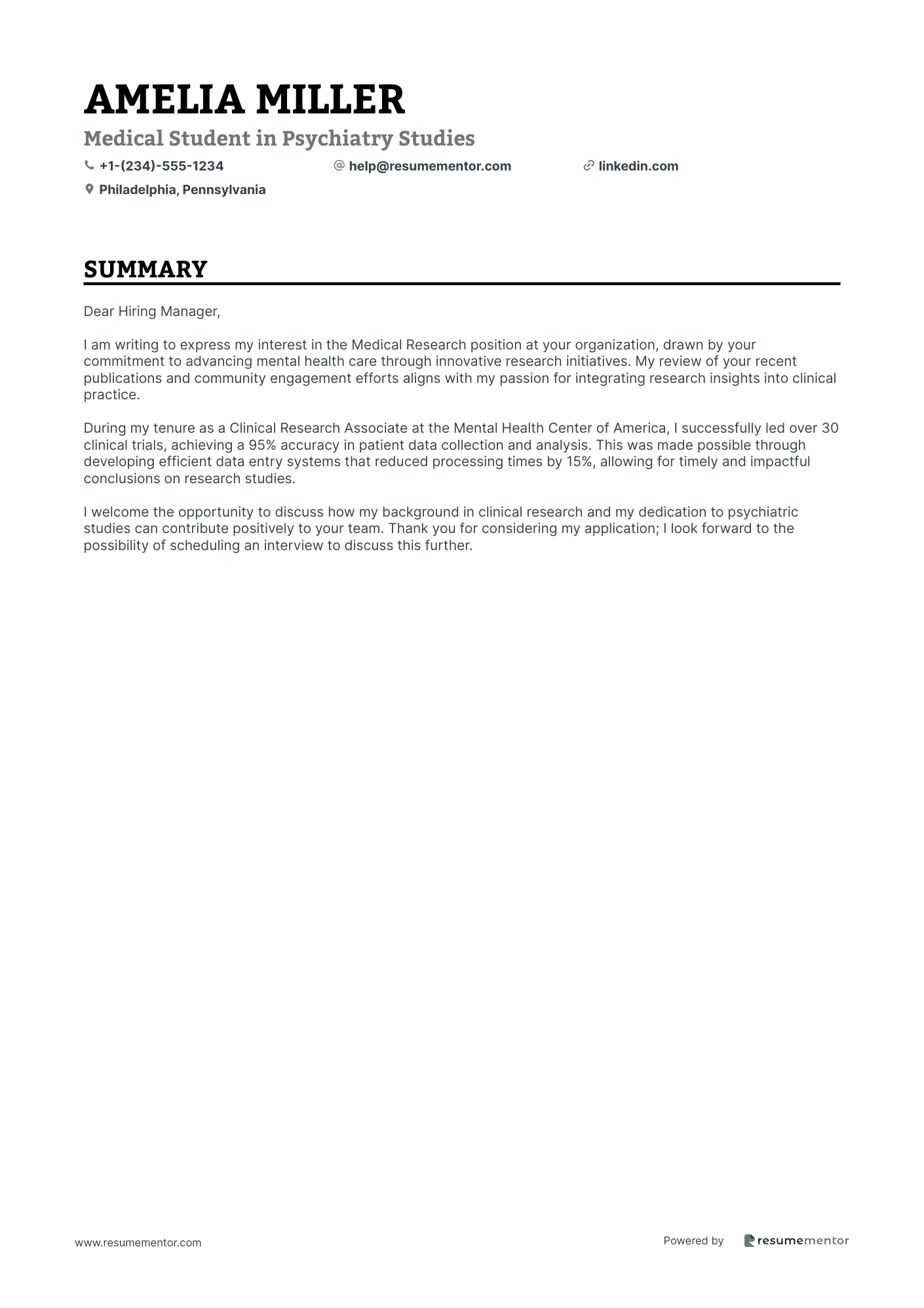
Medical Student in Psychiatry Studies
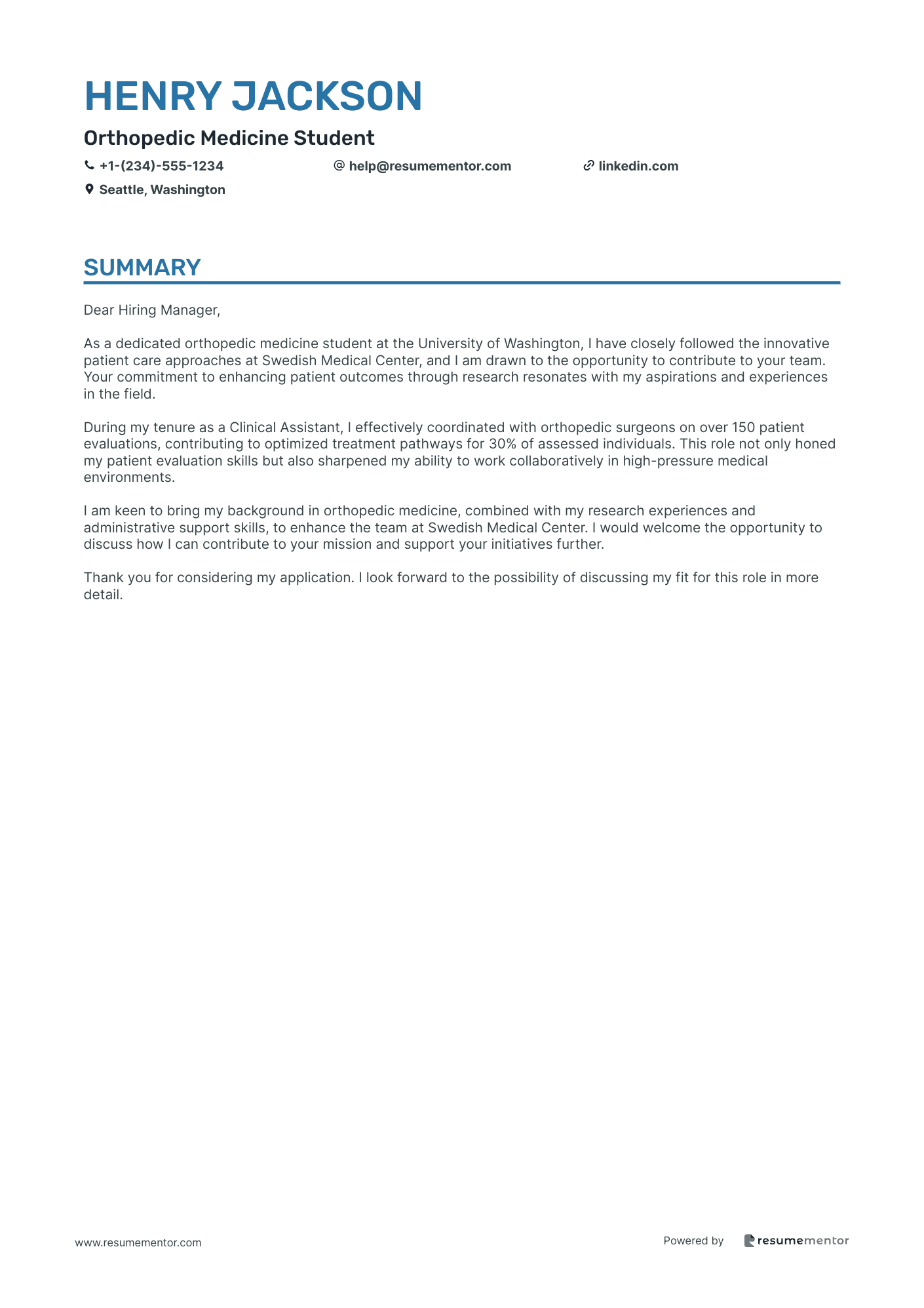
Orthopedic Medicine Student
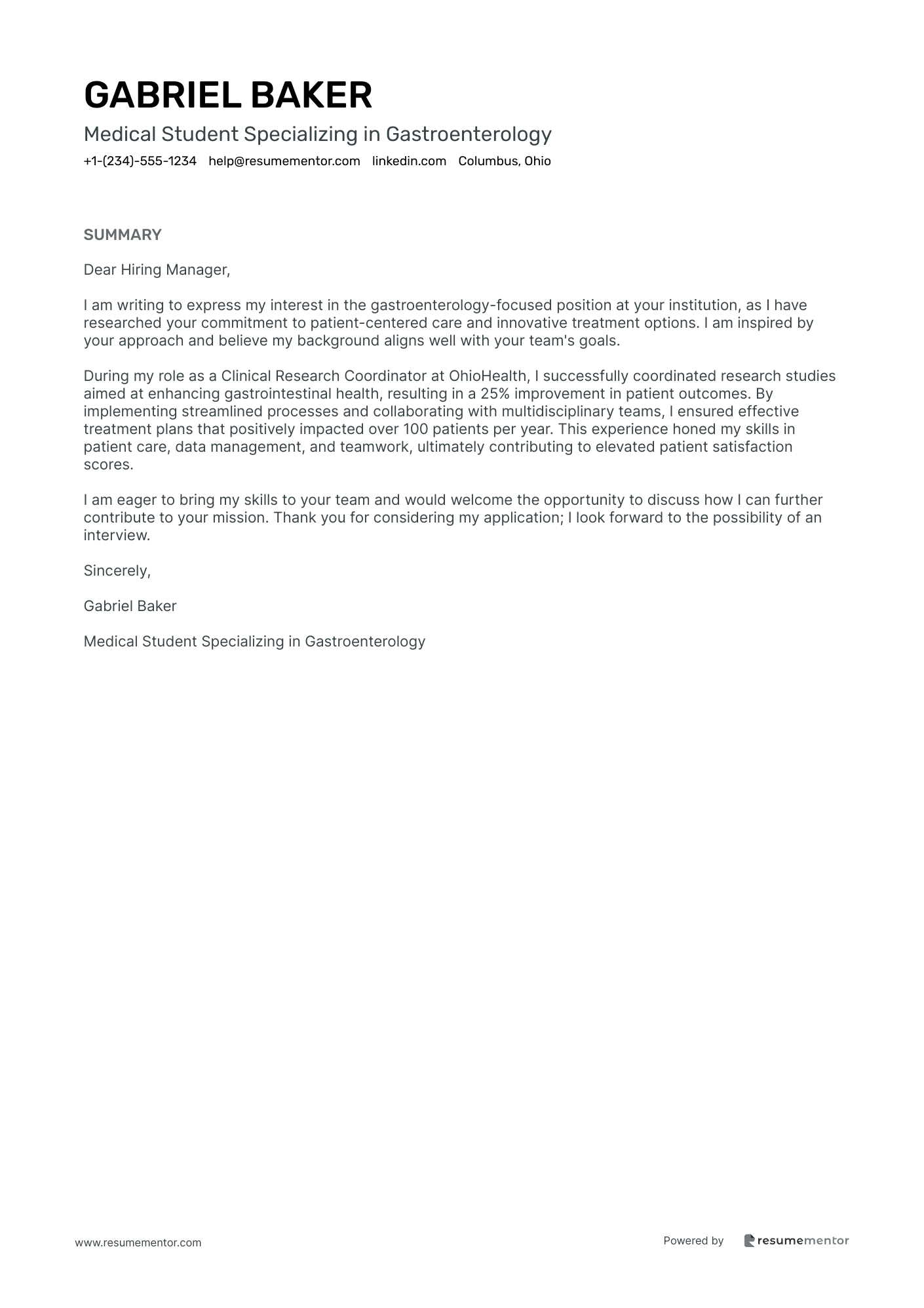
Medical Student specializing in Gastroenterology
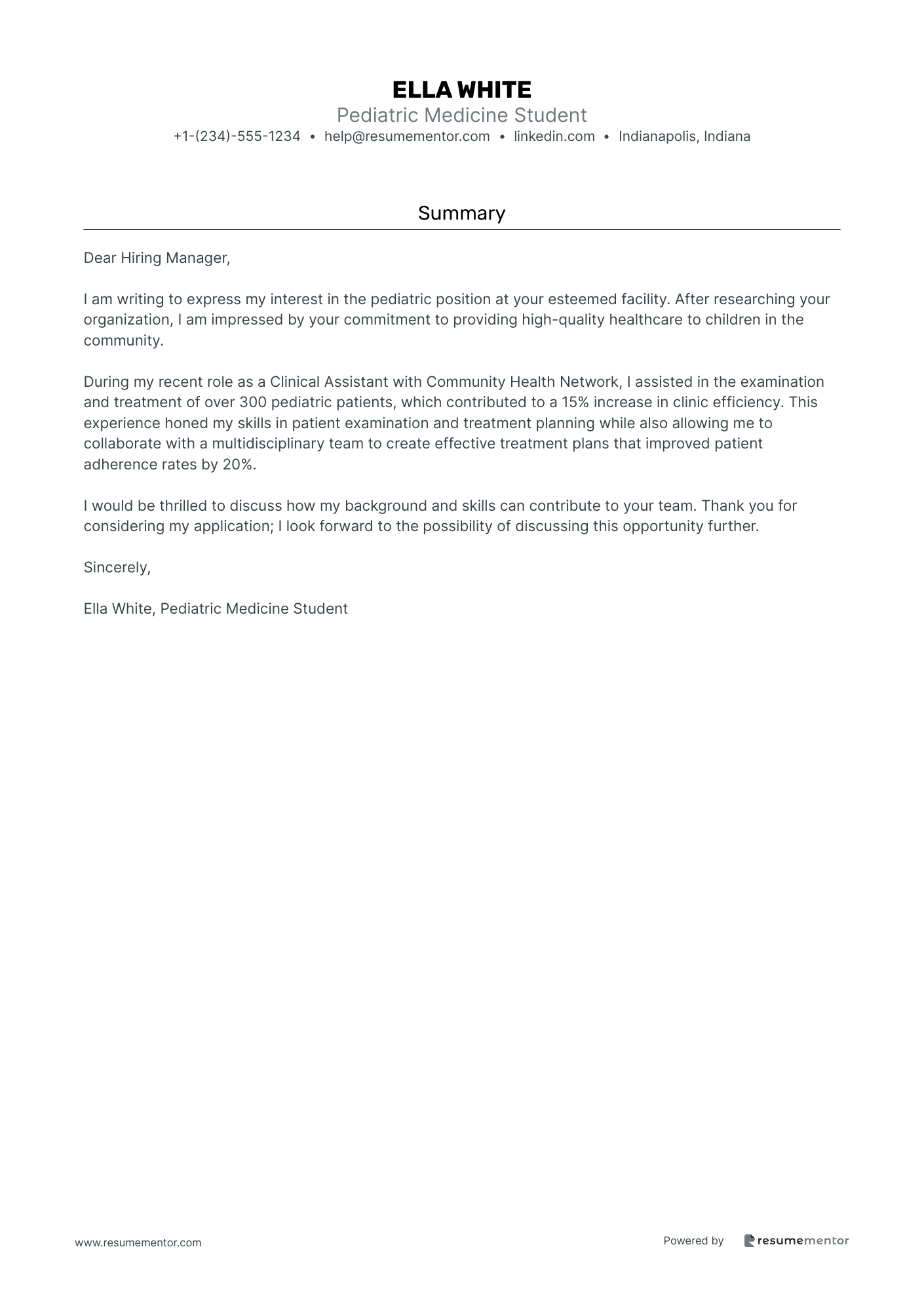
Pediatric Medicine Student

Medical Student in Cardiovascular Studies cover letter sample
Medical Student specializing in Oncology cover letter sample
Medical Student in Neurology Studies cover letter sample
Dermatology-focused Medical Student cover letter sample
Medical Student with focus in Pathology cover letter sample
Radiology Medical Student cover letter sample
Medical Student in Psychiatry Studies cover letter sample
Orthopedic Medicine Student cover letter sample
Medical Student specializing in Gastroenterology cover letter sample
Pediatric Medicine Student cover letter sample
Related Articles

Continue Reading
Check more recommended readings to get the job of your dreams.
Resume
Resources
Tools
© 2026. All rights reserved.
Made with love by people who care.
